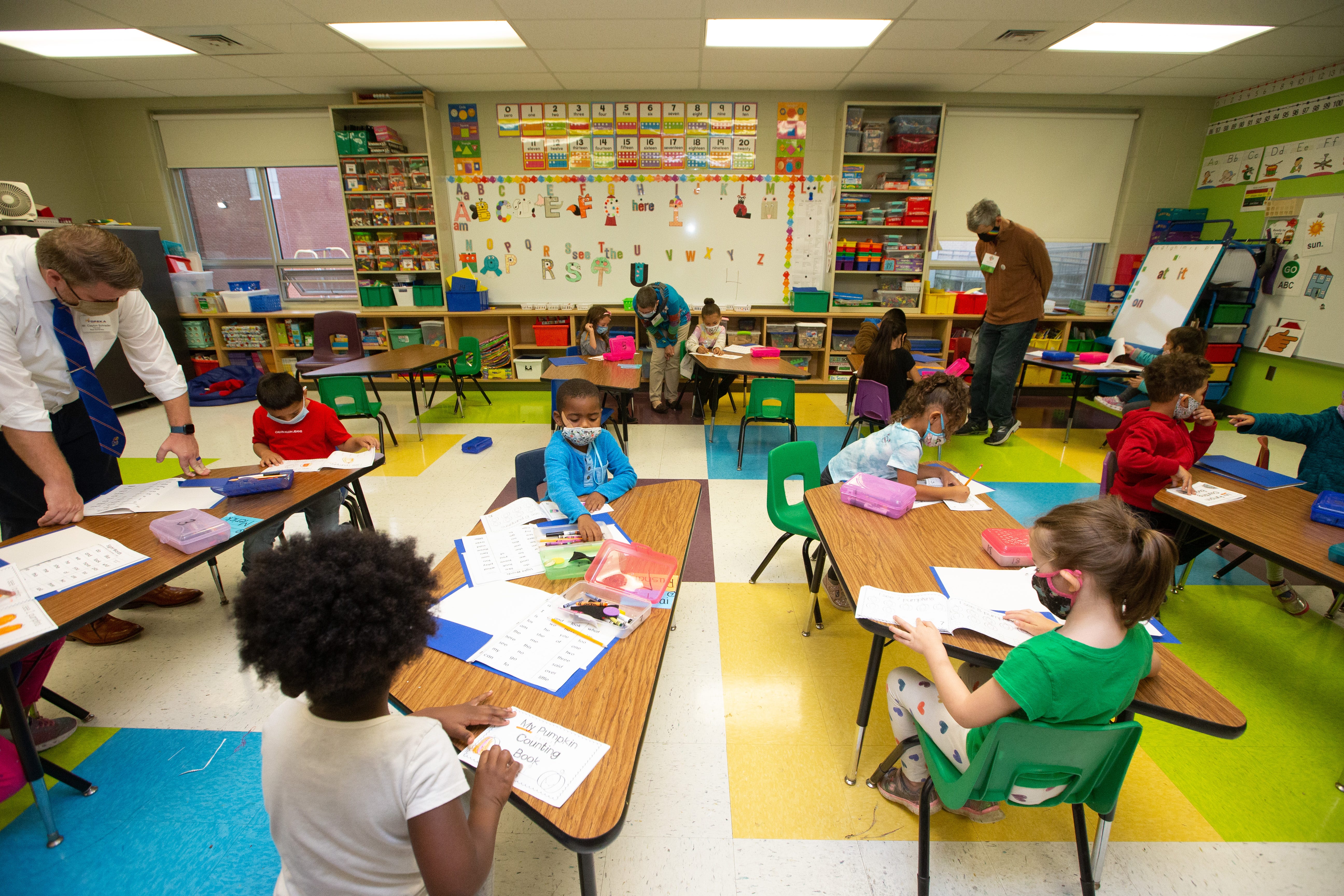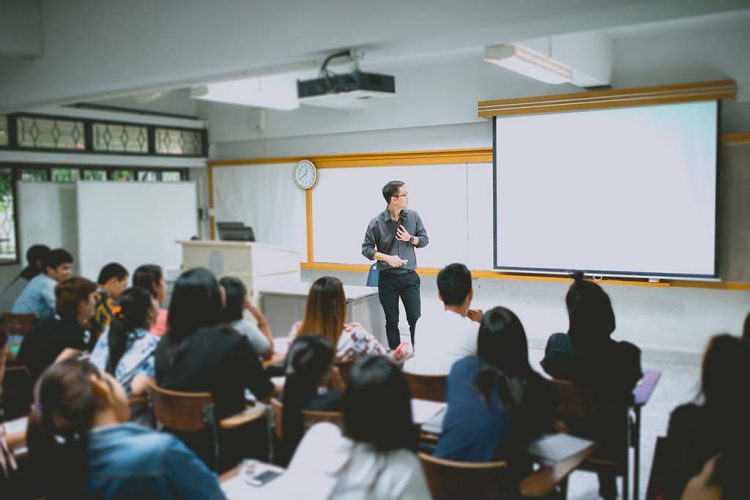Find the Best Primary Science Tuition Singapore for Enhanced Learning
Find the Best Primary Science Tuition Singapore for Enhanced Learning
Blog Article
Discovering the Various Training Strategies in Key Scientific Research Education And Learning Today
The landscape of key scientific research education and learning is evolving, with various mentor strategies acquiring prestige in modern classrooms. Inquiry-based knowing, hands-on experiments, and the integration of technology are redefining how instructors involve young minds. Additionally, collaborative strategies and separated direction are being utilized to satisfy the diverse requirements of students, boosting both involvement and understanding. As we take a look at these methods, concerns develop about their effectiveness and the implications for future instructional methods. What might these changes in strategy mean for the future generation of students?
Inquiry-Based Understanding
Inquiry-Based Understanding (IBL) is an instructional strategy that urges students to check out scientific ideas through questioning, examination, and hands-on testing. This method highlights the role of trainees as active individuals in their learning, promoting essential reasoning and analytical abilities. By engaging with real-world inquiries, students end up being motivated and interested, which improves their understanding of clinical principles.
In IBL, teachers serve as facilitators, guiding students as they navigate their queries instead than delivering info directly. This student-centered strategy permits distinction, fitting different learning paces and styles. Trainees establish abilities in formulating theories, creating experiments, and examining data, which are important for scientific proficiency.
Furthermore, IBL fosters collaboration among trainees, encouraging them to share findings and concepts. This collective questions advertises social abilities and a feeling of area within the classroom. Furthermore, the procedure of inquiry encourages durability, as pupils learn to accept failing as a stepping rock towards understanding.
Hands-On Experiments
Hands-on experiments are a crucial component of efficient science education, enhancing the principles of inquiry-based knowing. These experiments allow trainees to engage directly with clinical concepts, fostering a deeper understanding through experiential learning. By manipulating materials and observing results, young students can understand abstract concepts in substantial ways.
Such activities promote vital thinking and analytic abilities, as students hypothesize outcomes, conduct experiments, and analyze outcomes. This process motivates them to ask inquiries, improve their understanding, and create a scientific frame of mind. Hands-on experiments can be customized to varied knowing styles, making certain that all students have the possibility to involve meaningfully with the content.
In addition, hands-on experiments usually urge collaboration among peers, advertising synergy and interaction skills. Working in teams enables pupils to share concepts, talk about searchings for, and pick up from one an additional, which improves their total instructional experience.
Integrating hands-on experiments into the key science educational program not just enriches the discovering setting but additionally cultivates a lifelong passion in scientific research. By actively participating in their education, pupils are more probable to develop an interest for scientific questions that expands beyond the classroom.

Innovation Assimilation
Incorporating innovation right into key science education has actually come to be significantly crucial in cultivating student involvement and improving learning end results. Using electronic tools, such as interactive simulations, virtual labs, and academic software, offers pupils with chances to check out clinical concepts in cutting-edge means. These sources facilitate a much deeper understanding of intricate topics by enabling learners to envision and manipulate variables that would certainly be unwise in a typical classroom setting.
Additionally, modern technology integration motivates individualized learning experiences. Trainees can proceed at their own pace, taking another look at tough ideas with multimedia resources, which accommodate different learning designs. This flexibility not just sustains specific development but likewise grows a feeling of freedom in students.
Additionally, technology acts as a bridge to real-world science, linking trainees with existing study and professional payments. Accessibility to on-line databases and scientific journals widens students' point of views on scientific query and promotes crucial assuming skills.
Collaborative Knowing
Collective learning plays an essential role in main scientific research education by promoting synergy and communication skills among pupils. This method motivates students to function together, share knowledge, and participate in analytical, which boosts their understanding of clinical ideas. By joining group activities, pupils find out to express their ideas, listen to diverse viewpoints, and negotiate options, every one of which are crucial skills in both scholastic and real-world contexts.

Research study indicates that joint learning can bring about enhanced inspiration and engagement in scientific research topics, as students discover enjoyment in shared experiences (primary science tuition Singapore). In addition, this technique prepares trainees for future collaborative endeavors, equipping them with the abilities essential for reliable team effort in greater education and expert atmospheres. Eventually, accepting joint discovering in main science education and learning can considerably enrich the learning experience and promote a deeper understanding of clinical questions
Set Apart Direction

Differentiated guideline can manifest in various means, such as differing the web content, procedures, or items of learning. Educators may use tiered assignments that provide varying degrees of intricacy, allowing trainees to work at their particular preparedness degrees. In addition, flexible grouping methods can facilitate partnership amongst pupils with different abilities, cultivating peer learning.
Analysis plays a vital duty in this strategy, as it educates instruction and assists educators recognize each trainee's special demands. Formative analyses, such as observations and quizzes, can assist educators in changing their approaches to enhance learning end results. primary science tuition Singapore. Ultimately, by applying separated instruction in key science education, instructors can cultivate a more fair and effective learning atmosphere, equipping all trainees to reach their find this full potential in recognizing scientific sensations
Conclusion
In recap, the varied training approaches in main science education and learning, including inquiry-based understanding, hands-on experiments, modern technology combination, collective knowing, and distinguished guideline, jointly contribute to a more efficient knowing setting. These approaches advertise vital reasoning, analytic abilities, and a deeper comprehension of scientific concepts. By applying these methods, instructors can develop interesting and encouraging classrooms that address the different requirements of pupils, inevitably promoting a long-lasting interest in science and enhancing scholastic accomplishment.
Inquiry-Based Understanding (IBL) is an instructional strategy that encourages students to check out scientific concepts with doubting, investigation, and hands-on experimentation.Collaborative learning plays a click to read more vital role in primary science education by fostering team effort and interaction abilities among trainees.Research study suggests that joint discovering can lead to increased motivation and interaction in science topics, as trainees discover enjoyment in shared experiences.In fostering a comprehensive knowing environment, distinguished guideline emerges as a key strategy to fit the varied requirements and abilities of trainees in primary scientific research education. Inevitably, by carrying out separated instruction in key science education and learning, teachers can cultivate a much more efficient and equitable understanding setting, equipping all pupils to reach their complete potential in recognizing scientific phenomena.
Report this page